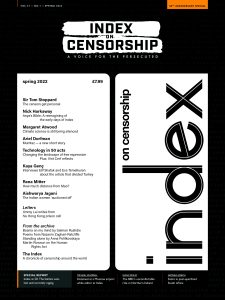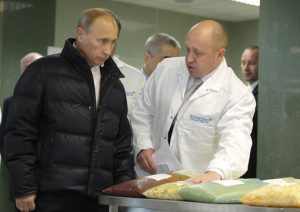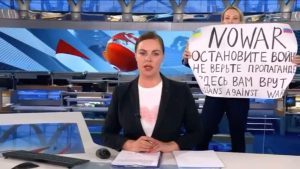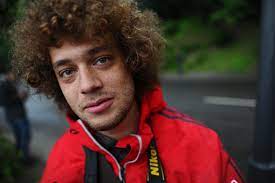Index relies entirely on the support of donors and readers to do its work.
Help us keep amplifying censored voices today.
The story of Index on Censorship is steeped in the romance and myth of the Cold War.
In one version of the narrative, it is a tale that brings together courageous young dissidents battling a totalitarian regime and liberal Western intellectuals desperate to help – both groups united in their respect for enlightenment values.
In another, it is just one colourful episode in a fight to the death between two superpower ideologies, where the world of letters found itself at the centre of a propaganda war.
Both versions are true.
It is undeniably the case that Index was founded during the Cold War by a group of intellectuals blooded in cultural diplomacy. Western governments (and intelligence services) were keen to demonstrate that the life of the mind could truly flourish only where Western values of democracy and free speech held sway.
But in all the words written over the years about how Index came to be, it is important not to forget the people at the heart of it all: the dissidents themselves, living the daily reality of censorship, repression and potential death.
The story really began not in 1972, with the first publication of this magazine, but with a letter to The Times and the French paper Le Monde on 13 January 1968. This Appeal to World Public Opinion was signed by Larisa Bogoraz Daniel, a veteran dissident, and Pavel Litvinov, a young physics teacher who had been drawn into the fragile opposition movement during the celebrated show-trial of intellectuals Andrei Sinyavsky and Yuli Daniel (Larisa’s husband) in February 1966. This is now generally accepted as being the beginning of the modern Soviet dissident movement.
The letter itself was written in response to the Trial of Four in January 1968, which saw two students, Yuri Galanskov and Alexander Ginzburg, sentenced to five years’ hard labour for the production of anti-communist literature.
The other two defendants were Alexey Dobrovolsky, who pleaded guilty and co-operated with the prosecution, and a typist, Vera Lashkova.
Ginzburg later became a prominent dissident and lived in exile in Paris, Galanskov died in a labour camp in 1972 and Dobrovolsky was sent to a psychiatric hospital. Lashkova’s fate is unclear.
The letter was the first of its kind, appealing to the Soviet people and the outside world rather than directly to the authorities. “We appeal to everyone in whom conscience is alive and who has sufficient courage… Citizens of our country, this trial is a stain on the honour of our state and on the conscience of every one of us.”
The letter went on to evoke the shadow of Joseph Stalin’s show-trials in the 1930s and ended: “We pass this appeal to the Western progressive press and ask for it to be published and broadcast by radio as soon as possible – we are not sending this request to Soviet newspapers because that is hopeless.”
The trial took place in a courthouse packed with Kremlin supporters, while protesters outside endured temperatures of 50 degrees below zero.
The poet Stephen Spender responded to the letter by organising a telegram of support from 16 prominent artists and intellectuals, including philosopher Bertrand Russell, poet WH Auden, composer Igor Stravinsky and novelists JB Priestley and Mary McCarthy.
It took eight months for Litvinov to respond, as he had heard the words of support only on the radio and was waiting for the official telegram to arrive. It never did.
On 8 August 1968, the young dissident outlined a bold plan for support in the West for what he called “the democratic movement in the USSR”. He proposed a committee made up of “universally respected progressive writers, scholars, artists and public personalities” to be taken not just from the USA and western Europe but also from Latin America, Asia, Africa and, ultimately, from the Soviet bloc itself. Litvinov later wrote an account in Index explaining how he had typed the letter and given it to Dutch journalist and human rights activist Karel van Het Reve, who smuggled it out of the country to Amsterdam the next day. Two weeks later, Soviet tanks rolled into Czechoslovakia to crush the Prague Spring.
On 25 August 1968, Litvinov and Bogoraz Daniel joined six others in Red Square to demonstrate against the invasion. It was an extraordinary act of courage. They sat down and unfurled homemade banners with slogans that included “We are Losing Our Friends”, “Long Live a Free and Independent Czechoslovakia”, “Shame on Occupiers!” and “For Your Freedom and Ours”.
The activists were immediately arrested and most received sentences of prison or exile, while two were sent to psychiatric hospitals.
Vaclav Havel, the dissident playwright and first president of the Czech Republic, later said in a Novaya Gazeta article: “For the citizens of Czechoslovakia, these people became the conscience of the Soviet Union, whose leadership without hesitation undertook a despicable military attack on a sovereign state and ally.”
When Ginzburg died in 2002, novelist Zinovy Zinik used his Guardian obituary to sound a note of caution. Ginzburg, he wrote, was “a nostalgic figure of modern times, part of the Western myth of the Russia of the 1950s, ’60s and ’70s, when literature, the word, played a crucial part in political change”.
Speaking 20 years later, Zinik told Index he did not even like the English word “dissident”, which failed to capture the true complexity of the opposition to the Soviet regime. “The Russian word used before ‘dissidents’ invaded the language was ‘inakomyslyashchiye’ – it is an archaic word but was adopted into conversational vocabulary. The correct translation would be ‘holders of heterodox views’.”
It’s perhaps understandable that the archaic Russian word didn’t catch on, but his point is instructive.
As Zinik warned, it is all too easy to romanticise this era and see it through a Western lens. The Appeal to World Public Opinion was not important because it led to the founding of Index. The letter was important because it internationalised the struggle of the Soviet dissident movement.
As Litvinov later wrote in Index: “Only a few people understood at the time that these individual protests were becoming a part of a movement which the Soviet authorities would never be able to eradicate.” Index was a consequence of Litvinov’s appeal; it was not the point of the exercise and there was no mention of a magazine in the early correspondence.
The original idea was to set up an organisation, Writers and Scholars International, to give support to the dissidents. It was only with the appointment of Michael Scammell in 1971 that the idea emerged to establish a magazine to publish and promote the work of dissidents around the world.
Spender and his great friend and co-collaborator, the Oxford philosopher Stuart Hampshire, were still reeling from revelations about CIA funding of their previous magazine, Encounter.
“I knew that [they]… had attempted unsuccessfully to start a new magazine and I felt that they would support something in the publishing line,” Scammell wrote in Index in 1981.
Speaking recently from his home in New York, Scammell told me: “I understood Pavel Litvinov’s leanings here. He understood that a magazine that was impartial would stand a better chance of making an impression in the Soviet Union than if it could just be waved away as another CIA project.”
Philip Spender, the poet’s nephew, who worked for many years at Index, agreed: “Pavel Litvinov was the seed from which Index grew… He always said it shouldn’t be anti-communist or anti-Soviet. The point wasn’t this or that ideology. Index was never pro any ideology.”
It has been suggested that Index did not mark quite such a clean break – it was set up by the same Cold Warriors and susceptible to the same CIA influence. In her exhaustive examination of the cultural Cold War, Who Paid the Piper, journalist Frances Stonor Saunders claimed Index was set up with a “substantial grant” from the Ford Foundation, which had long been linked to the CIA.
In fact, the Ford funding came later, but it lasted for two decades and raises serious questions about what its backers thought Index was for.
Scammell now recognises that the CIA was playing a sophisticated game at the time. “On one level this is probably heresy to say so, but one must applaud the skills of the CIA. I mean, they had that money all over the place. So, I would get the Ford Foundation grant, let’s say, and it never ever occurred to me that that money itself might have come from the CIA.”
He added: “I would not have taken any money that was labelled CIA, but I think they were incredibly smart.”
By the time the magazine appeared in spring 1972, it had come a long way from its origins in the Soviet opposition movement. It did reproduce two short works by Alexander Solzhenitsyn and poetry by dissident Natalya Gorbanevskaya (a participant in the 1968 Red Square demonstration, who had been released from a psychiatric hospital in February of that year). But it also contained pieces about Bangladesh, Brazil, Greece, Portugal and Yugoslavia.
Philip Spender said it was important to understand the context of the times: “There was a lot of repression in the world in the early ’70s. There was the imprisonment of writers in the Soviet Union, but also Greece, Spain and Portugal. There was also apartheid. There was a coup in Chile in 1973, which rounded up dissidents. Brazil was not a friendly place.”
He said Index thought of itself as the literary version of Amnesty International. “It wasn’t a political stance, it was a non-political stance against the use of force.”
The first edition of the magazine opened with an essay by Stephen Spender, With Concern for Those Not Free. He asked each reader of the article to say to themselves: “If a writer whose works are banned wishes to be published and if I am in a position to help him to be published, then to refuse to give help is for me to support censorship.”
He ended the essay in the hope that Index would act as part of an answer to the appeal “from those who are censored, banned or imprisoned to consider their case as our own”.
Since Index was founded, the Berlin Wall has fallen and apartheid has been dismantled. We have witnessed the “war on terror”, the rise of Russian president Vladimir Putin and the emergence of China as a world superpower.
And yet, if it is not too grand or presumptuous, the role of the magazine remains unchanged – to consider the case of the dissident writer as our own.
 This article first appeared in our Spring 2022 issue, available by print subscription here and by digital subscription here.
This article first appeared in our Spring 2022 issue, available by print subscription here and by digital subscription here. 
Vladimir Putin tours the Concord factory and meets director Yevgeny Prigozhin, photo: Government of the Russian Federation
The undersigned organisations express their serious concern at the legal proceedings being brought in London against journalist Eliot Higgins, founder of the investigative journalism outlet Bellingcat. The lawsuit is being taken by Yevgeniy Prigozhin, a Russian oligarch who is widely known as “Putin’s Chef” due to his catering businesses and his close ties to Russian president Vladimir Putin.
Prigozhin claims that he was defamed, and thereby caused serious reputational harm, by five tweets published by Higgins on his Twitter page in August 2020. He is suing Higgins not only for the content of the tweets, but for the content of the media articles (including reports by Bellingcat and CNN) that were linked in the tweets. The media articles referred to Prigozhin’s business operations’ tight links to Russia’s Defence Ministry and its intelligence arm, the GRU.
In September 2021, Prigozhin announced via his press office that he had intended to sue Higgins and Bellingcat in the UK but was prevented from doing so due to the sanctions that had been imposed on him. The UK imposed sanctions on Prigozhin in 2020 for involvement in “significant foreign mercenary activity in Libya and multiple breaches of the UN arms embargo.”
However in December 2021, Prigozhin succeeded in serving Higgins with the lawsuit. This raises questions around whether and why Her Majesty’s Treasury gave Prigozhin permission to proceed with the legal action despite the sanctions.
“We believe that the lawsuit that is being brought against Eliot Higgins is a strategic lawsuit against public participation,” the undersigned organisations said. SLAPPs are an abuse of the law aimed at silencing public interest speech. Index on Censorship has filed a media freedom alert to the Council of Europe Platform for the Protection of Journalism and Safety of Journalists.
In March 2022 Discreet Law LLP, which had been representing Prigozhin, successfully applied to withdraw from representing him. They did not publicly give any reason for the withdrawal at the time.
The preliminary hearing in the case is due to take place on 13 April 2022.
Signed:
Index on Censorship
ARTICLE 19
Committee to Protect Journalists
The Daphne Caruana Galizia Foundation
English PEN
European Centre for Press and Media Freedom (ECPMF)
European Federation of Journalists (EFJ)
International Academy Serbia
International Institute – International Media Center
International Press Institute
IFEX
Global Witness
The Global Forum for Media Development
Justice for Journalists Foundation
National Union of Journalists
Organized Crime and Corruption Reporting Project (OCCRP)
PEN International
Reporters Without Borders
The Society of Authors
Spotlight on Corruption
South East Europe Media Organisation – SEEMO
Kateryna Yegorushkina is a Ukrainian children’s writer and publisher from a town close to Kyiv. Here, in our second video on the state of free expression in Ukraine, Kateryna speaks of her own situation as a writer and mother. She also draws parallels with the Second World War: as she prepared to flee the Russian invasion, Kateryna packed letters sent to her grandmother from her sweetheart who died at the front. The author also describes how the conflict has made her stop writing a planned book about “cute animals and their friendships” and switch instead to a children’s book about the war.

Evgeny Kissin, one of the most famous pianists in Russia, has described Vladimir Putin as a “bloodthirsty criminal”. Photo: Wikimedia Commons/Gkobe
The world in which Index on Censorship was born seems to be reemerging. In August 1968, after the blossoming of freedoms in Czechoslovakia known collectively as the Prague Spring, the Soviet Union invaded the country. Protesters were brutally crushed. Despite the violence and the stranglehold on freedoms back in Russia, eight fearless dissidents took to Red Square in Moscow to demonstrate.
One of the bold demonstrators was Pavel Litvinov, a young physicist at the time. In that same year Litvinov had co-authored a pamphlet entitled Appeal to World Public Opinion, asking those in the west to fight against the suppression of dissent in the Soviet Union. The poet Stephen Spender responded, suggesting the creation of an international committee whose goal would be to support the democratic movement in the USSR. This committee would engage writers, scholars, artists and public personalities from countries like the UK, the USA and also Latin American nations.
This is how Index on Censorship was brought into life, responding to the call of these dissidents and giving them a voice.
More than 50 years later, the USSR doesn’t exist anymore, but Russia has shocked the world with the invasion and consequential brutal war in Ukraine. What remains is the courage and bravery of people and dissidents defying the regime of Vladimir Putin. Below are just six of the noticeable Russian citizens who’ve spoken up against Putin and the war in Ukraine.

Russian artist Victoria Marchenkova, who’s been using Facebook to encourage people in Ukraine to flee to Canada. Photo: Wikimedia Commons/Na4ya
“STOP THE WAR” – that’s what the Moscow-born artist Victoria Marchenkova wrote on her website. Marchenkova works with different styles, but with one thing in mind: approaching the economic situation of the world, international traditions and its heritage. After the war in Ukraine began, she announced on her website that her solo exhibition at a Moscow gallery had been delayed until the end of the Russian invasion. Her exact words? “Please let’s save the world all together. STOP THE WAR”. Very active on Facebook, she has also encouraged people in Ukraine to flee to Canada.[/vc_column_text][vc_custom_heading text=”2. Evgeny Kissin – pianist”][vc_column_text]The pianist Evgeny Kissin has been an important name from Russia who declared himself against the war. In a solemn video titled Note of Protest, Kissin called Russia’s invasion of Ukraine a crime that has no excuse and also described Vladimir Putin as a bloodthirsty criminal. “Sadly, far from all who initiate criminal wars are punished, but none escape the judgment of history,” Kissin said. The video was published on his Instagram account and was viewed around 100,000 times.[/vc_column_text][vc_custom_heading text=”3. Mikhail Gelfand – biologist”][vc_column_text]Renowned Russian biologist Mikhail Gelfand is considered one of the most important people in the area of molecular evolution, comparative genomics and systems biology. He was the main person behind a letter signed by approximately 7,000 Russian scientists against the war in Ukraine. It’s a bold move. The Russian president has said that every Russian citizen who questions his invasion of Ukraine will be treated as a traitor and that a necessary self-purification of society will help to strengthen the country.[/vc_column_text][vc_custom_heading text=”4. Marina Ovsyannikova – journalist”][vc_column_text]
Daughter to a Russian mother and an Ukrainian father, Marina Ovsyannikova is a Russian journalist who had a job on the Channel One Russia TV channel. She gained prominence after she broke into a state-controlled Russian TV news broadcast and protested against the war. As a result, she was arrested and fined, but was released afterwards. Today, while she waits trial for interrupting the news programme, she is very active on her Instagram account. If convicted, she could be sentenced to 15 years in prison. In a recent post on Instagram, she wrote: “I wanted to demonstrate to the world that not all Russian people believe the same and I believe that many people… are against the war.”

This video grab shows Russian Channel One editor Marina Ovsyannikova holding a poster reading ” Stop the war. Don’t believe the propaganda. Here they are lying to you” during on-air TV studio by news anchor Yekaterina Andreyeva, Russia’s most-watched evening news broadcast. Photo: Zuma Press/Alamy
[/vc_column_text][vc_custom_heading text=”5. Ilya Varlamov – blogger”][vc_column_text]The Russian Youtuber from Moscow has been speaking openly about the war in Ukraine on his Youtube channel, which is focused on analysing politics in Russia. Often critical in tone he has interviewed people such as Alexei Venediktov, the former editor-in-chief of the now-closed Ekho Moskvy. He has more than 3.3 million subscribers, where he’s been publishing videos almost daily. At the time of print, Varlamov had not been detained for his criticisms. He does have some experience of this though; he was briefly arrested in South Sudan after security found the remote control of a drone in his luggage, accusing him of trying to film military activities with the drone.

Russian Youtuber Ilya Varlamov. Photo: Wikimedia Commons/Mitya Aleshkovskiy
[/vc_column_text][vc_custom_heading text=”6. Youri Doud – blogger”][vc_column_text]Born in East Germany in 1986, Youri Doud sees himself as Russian by identity. He’s worked as a freelance journalist and in 2017 he launched a Youtube channel with the purpose of interviewing Russian celebrities. After Russia began its so called “mission” in Ukraine, Doud shared on his Instagram account a song called 100-year War, written by the group Noize MC, which has achieved millions of likes and reactions. The song discusses what artists should do when it’s not within their power to change a political catastrophe which is developing. The conclusion of the band is short and clear: “We have no other choice than to honestly speak up about what is happening. So that’s what we are doing.